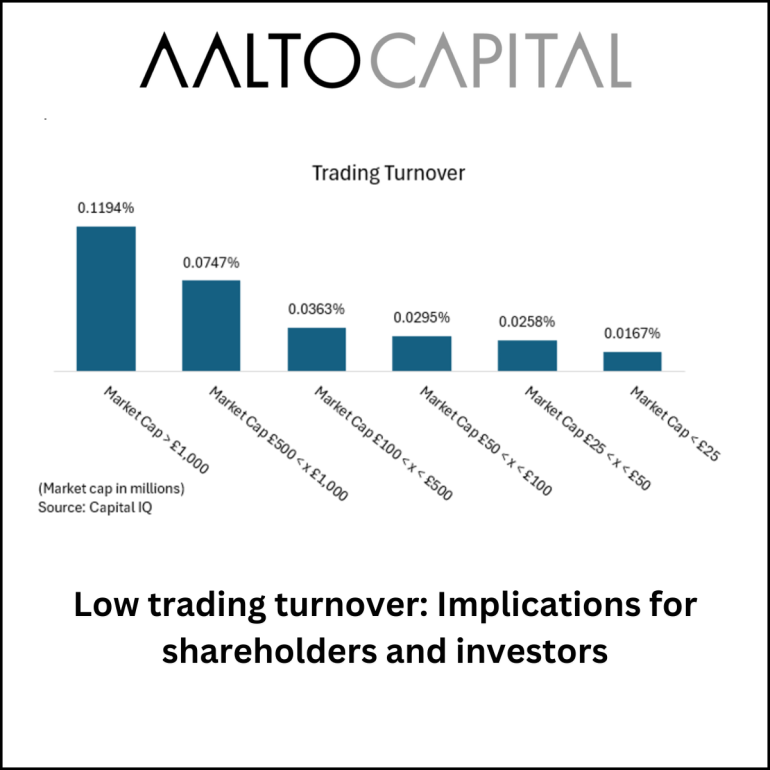Low trading turnover:
implications for shareholders and investors

Building on Aalto Capital's previous exploration of the IT Services sector in Europe, which revealed a significant discount at which smaller-cap stocks trade compared to their larger counterparts, we delve into another critical metric: trading turnover.
The analysis below focuses on trading turnover, calculated by dividing the median daily trading volume by the shares outstanding over the past year in the European IT Services sector. Our findings indicate a substantial disparity in trading turnover between small-cap vs large-cap stocks.
This difference in trading turnover can lead to mispricing of shares, driven by reduced interest from institutional investors and limited market liquidity. With fewer transactions, share prices may fail to accurately reflect the underlying company value, potentially presenting opportunities for astute investors to capitalise on undervalued assets or for strategic acquirers to identify targets for value creation.
Moreover, low trading activity can pose challenges for current shareholders who may find themselves unable to sell their shares due to illiquidity. This frustration among shareholders may escalate, particularly if they seek an exit strategy but are hindered by the constraints of low trading volumes.
As companies navigate the complexities of low trading turnover, proactive measures to enhance market liquidity and shareholder engagement become imperative. Transparent communication with shareholders and strategic initiatives aimed at improving market visibility can help mitigate the risks associated with limited trading activity and unlock shareholder value.